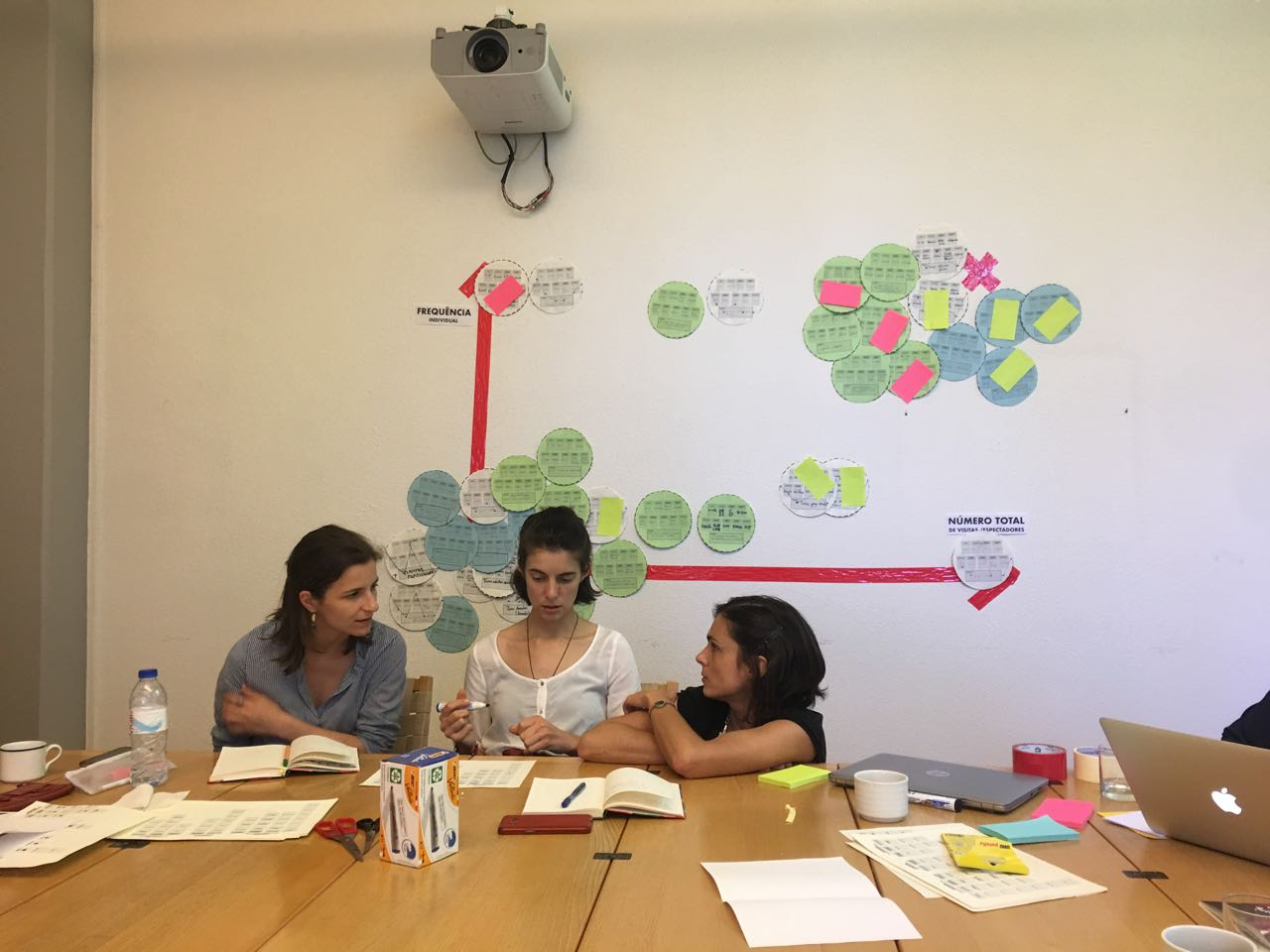The ACED Project
The project Gulbenkian 15-25 Imagina is the result of a set of workshops held with the support of Mapa das Ideias (the Portuguese partner of the Calouste Gulbenkian Foundation for the ADESTE+ programme) to develop an Audience Development project capable of engaging several departments of the Foundation.
The workshops followed the Design Thinking methodology advocated by Adeste+ with participants from five departments of the Calouste Gulbenkian Foundation: educational services of the museum; music; gardens; marketing; and communication. Although the general framework developed in the blueprint was followed, specific adjustments were made considering the involved participants.
The Program had three main intentions to be addressed by the facilitators and participants from different departments of the “tested” partner:
- Develop knowledge and awareness of selected AD themes across the organisation;
- Build an organisational commitment;
- Develop ideas and solutions that could work as the basis for the AD Programs
- To understand what the youth perception of our institution is. How our cultural offer and communication can be shaped to fulfil the youth interests and needs, why we are missing young people
The Capacity building programme followed for this programme was:
- Empathy: Understand Needs;
- Define: opportunity, audience, and needs;
- Ideation: task force briefs;
- Prototypes;
- Test Action Plans: task force briefs.
We could summarise the implementation steps as follows:
Training - Thinking, creating and dialoguing - with the Gubelkian staff
Programming - Ideas and investigation
Implementing a programme - Production
Reflecting on the process and producing records/memory
Adjustment had to be made due to the COVID -19 pandemic

Outcomes
PROTOTYPE IMPLEMENTATION
From January to June 2020, the “Gulbenkian 15-25 Imagina” project took place as a co-programming experience, in which 21 young people between 18 and 25 years old were given access to a range of experiences within the organization that allowed them to conceive co-program and co-produce a small number of events integrated into the Gulbenkian Foundation (FCG) programming schedule.
The three main ideas of the plan initially conceived by the group for their programme were “inhabiting”, “common household” and “ecosystem”, but the pandemic forced them to consider the notions of “body”, “public space”, “visibility/invisibility”, but also “art and resistance”. The group reformulated its guidelines and began trying to convey through their programme the discomfort everyone in the world was feeling, so they created a cycle of debates with the title “Imagine – thinking about the future today!”
gulbenkian.pt/en/projects/gulbenkian-15-25-imagina
Learning
The Gulbenkian Foundation is a complex organisation; the ACED process helped to understand that change can be achieved through small steps and by listening to the audiences you want to include from the beginning.
Such big projects need a lot of time and human resources. The confirmation that the expectations of the participants need to be respected.
Further Information
Andreia Dias, Gulbenkain Foundation Staff – The chance to rethink
vimeo.com/670629483
Ilídio Louro, Facilitator Mapas das Ideias - Looking at audiences in a different way
vimeo.com/669854865
Susana Gomes Da Silva, Gulbenkain Foundation Staff, - Common ground
vimeo.com/669835297
Inês Camara - A holistic approach
vimeo.com/669841794

